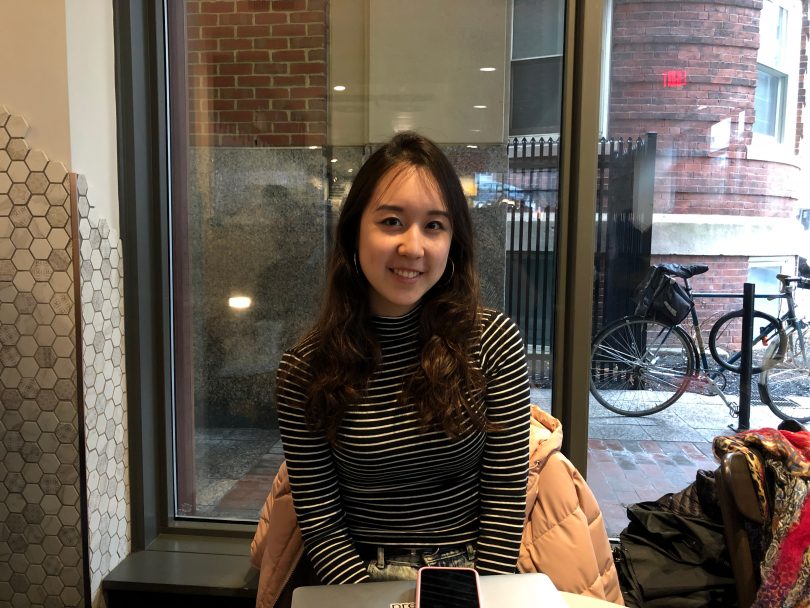By Jennifer Suryadjaja
BU News Service
CAMBRIDGE — A busy schedule is often the easy excuse
Donning a black and white long-sleeved striped shirt, Claire Spackman, founder
Spackman said she created her startup in summer 2018 to help others eat a healthy meal by delivering fresh, ready-to-eat meals. Though still at the ideation phase, Spackman said P
Growing up as a professional athlete in Hong Kong, Spackman developed a habit of healthy and conscious eating since she was a young child. She also wanted to start a company but did not know what. Until now.
As a senior at Harvard University studying psychology, Spackman said she juggles her startup, schoolwork and personal life. At times, Spackman said, professionals wouldn’t treat her seriously in her quest for partnerships and collaborations, as she is still a student.
“Every morning and every evening,” Spackman said, “I make sure I go through emails religiously.”
To focus and understand the business world better, she enrolled in a class titled “Social Entrepreneurship” at the Harvard Innovation Lab, or Harvard iLab, an innovation
Prettychill operates out of
Another consideration that pops up with launching a startup
The team works with professional chefs and are aiming to
Spackman said supply chain is the hardest part. Prettychill is trying to source all of its ingredients locally. However, it is not an easy task as different ingredients are sourced from different distributors or farmers.
The unique aspects of Prettychill meals are that each meal contains less than 10 ingredients and provides approximately 300 calories. Spackman said that the amount of calories is similar to that of typical protein bars, so customers can feel as if they are eating a full meal instead of merely snacking.
“There’s a huge consumer shift going on where people are moving away from having three giant meals a day to having six smaller meals and snacking, which I do all the time,” said Spackman.
Once ordering the food online, the food will come with ice packs to keep it fresh and customers can microwave their meal for two minutes.
The “chill” in
“I was just talking to my mum and she was like, why don’t we just do something super simple? Look at Facebook, it’s just the words face and book,” said Spackman. “And I went yeah let’s do a pretty chill thing.”
Although currently targeting the niche audience of women only, P
“Our goal is to introduce a new lifestyle of eating, so not just another food delivery company but we want to create a white space market,” said Spackman.





